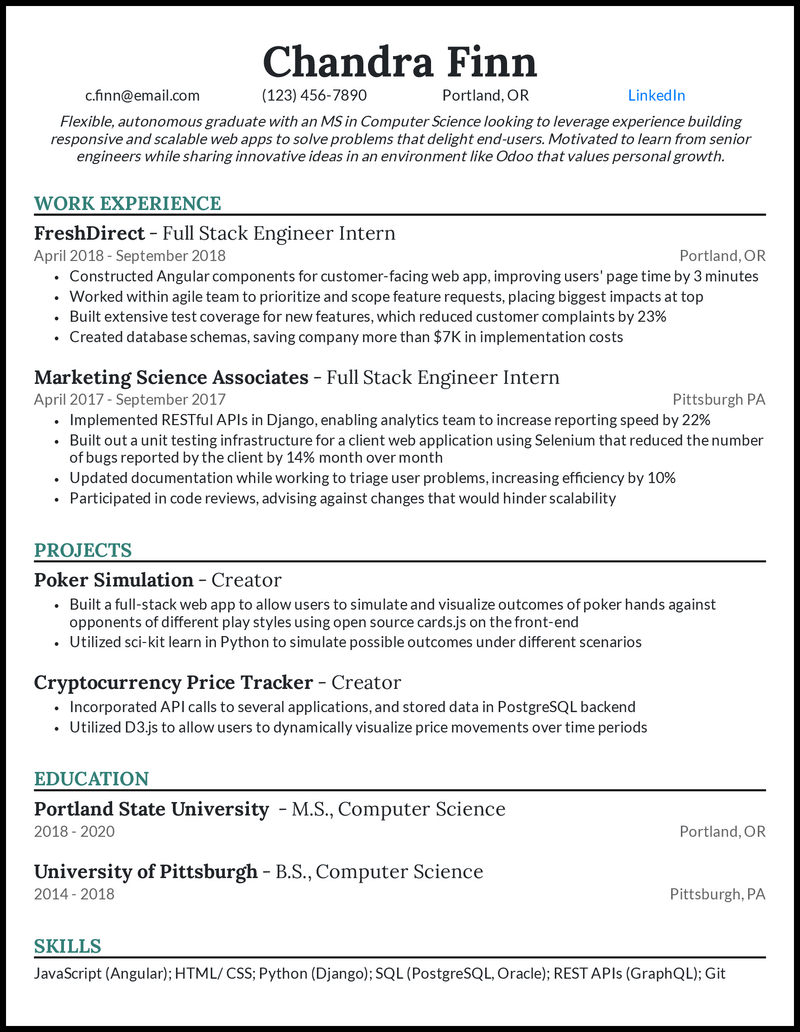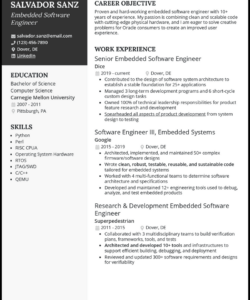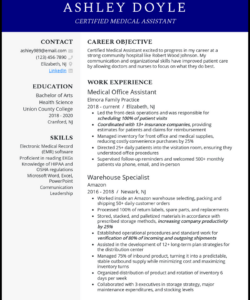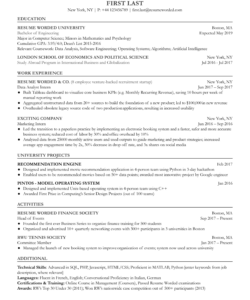Embarking on your career in computer science is an exciting journey, but landing that first entry-level position often feels like a formidable challenge. You’ve spent years honing your coding skills, understanding complex algorithms, and perhaps even building a few impressive personal projects. Now, the big question is: how do you effectively present all that hard work on paper when professional experience is scarce? The key lies in a well-crafted resume that highlights your potential and passion.
A strong resume is your first impression, a critical gateway that determines whether a recruiter or hiring manager will delve deeper into your application. For those just starting out, distinguishing yourself from a pool of equally enthusiastic candidates can be tricky. This is where a strategic approach, guided by an effective entry level computer science resume template, becomes invaluable, helping you structure your qualifications in a way that truly shines.
What to Include When You Have Limited Professional Experience
When you’re aiming for an entry-level computer science role, the absence of extensive work history shouldn’t be a roadblock. Instead, your resume becomes a canvas to showcase your foundational knowledge, practical skills, and unwavering passion for technology through other means. Think of every project, every course, and every certification as a piece of your professional puzzle. Recruiters understand that new graduates won’t have years of industry experience, so they look for potential, problem-solving abilities, and a solid understanding of core concepts.

Your academic background, personal projects, and technical skills are your primary assets. These sections should be fleshed out with specific details and quantifiable achievements whenever possible. For instance, instead of just listing “Java,” describe a project where you used Java to build a multi-threaded application that processed data 20% faster. This level of detail transforms a simple bullet point into a compelling story of your capabilities. Even contributions to open-source projects or participation in hackathons can demonstrate initiative and practical application of your skills.
Don’t underestimate the power of relevant coursework. If you took an advanced data structures and algorithms class or completed a capstone project in software engineering, highlight these. Explain what you learned and any significant outcomes or challenges you overcame. This provides context for your theoretical understanding and shows your ability to apply complex concepts. The goal is to bridge the gap between academic learning and real-world problem-solving, convincing employers that you can hit the ground running.
Furthermore, consider any non-traditional experiences that showcase transferable skills. Perhaps you led a study group, tutored peers, or managed a volunteer project. These roles can demonstrate leadership, teamwork, communication, and organizational skills – all highly valued in the tech industry. Frame these experiences to emphasize the soft skills you developed, proving you’re a well-rounded candidate ready for collaborative environments.
Key Sections for Your Entry Level Computer Science Resume Template
- Contact Information: Your name, phone number, email, and links to your professional profiles (LinkedIn, GitHub, personal portfolio).
- Objective/Summary: A concise paragraph tailored to the job, outlining your career goals and what you bring to the role. For entry-level, an objective focusing on learning and contributing is often suitable.
- Education: Your degree, major, university, graduation date, and relevant coursework or academic achievements (e.g., GPA if strong, dean’s list).
- Projects: The most crucial section for entry-level. Detail 3-5 projects (personal, academic, or open-source) including technologies used, your role, and quantifiable impact.
- Technical Skills: A clear list of programming languages, frameworks, tools, databases, and operating systems you’re proficient in. Categorize them for readability.
- Experience (if any): Internships, part-time jobs, or volunteer work. Focus on transferable skills and accomplishments rather than just duties.
- Awards and Certifications (Optional): Any accolades, scholarships, or relevant professional certifications.
Crafting Your Resume for Impact and Readability
Beyond the content, the presentation of your resume plays a crucial role in its effectiveness. An entry level computer science resume template should not only guide what information you include but also how you lay it out. A clean, organized, and professional design ensures readability for both human eyes and Applicant Tracking Systems (ATS), which many companies use to screen resumes before a human ever sees them. Simplicity and consistency in formatting are your best friends here.
Focus on using strong action verbs to describe your achievements. Instead of “Responsible for coding,” try “Developed,” “Implemented,” “Designed,” or “Optimized.” Quantify your accomplishments whenever possible. For example, “Developed a web application that reduced data processing time by 15%” is far more impactful than “Developed a web application.” Numbers and metrics provide concrete evidence of your contributions and impact, even in projects or academic settings.
Tailoring your resume for each application is another non-negotiable step. While an entry level computer science resume template provides a solid foundation, you should always customize it to align with the specific job description. Identify keywords and required skills mentioned in the job posting and strategically incorporate them into your resume where appropriate. This increases your chances of passing ATS scans and demonstrates to hiring managers that you’ve put thought into your application.
Finally, proofreading is paramount. A single typo or grammatical error can undermine your professionalism and attention to detail, which are critical traits for any computer science role. Read your resume aloud, have a trusted friend or mentor review it, and use online grammar checkers. A fresh pair of eyes can catch mistakes you’ve overlooked. Think of your resume as a piece of code – it needs to be bug-free to compile and run successfully.
Making sure your resume is concise, typically one page for entry-level roles, is also key. Recruiters spend only a few seconds scanning each resume initially, so every word counts. Be strategic about what you include, prioritizing the most relevant and impressive achievements. A well-constructed resume will speak volumes about your potential and dedication, opening doors to exciting career opportunities in the dynamic field of computer science.


